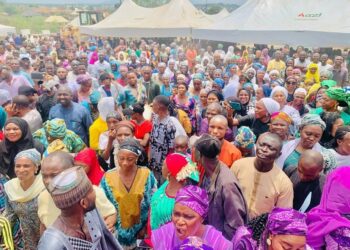Human Development Initiative (HDI) Cluster, a civil society organization, has lamented the poor learning conditions in Universal Basic Education Board (UBEB) schools in the FCT, as a result of the abandonment and non-implementation of projects.
Speaking at a stakeholders’ review and validation of independent monitoring report on FCT UBEB 2014 Action Plan, in Abuja, the researcher, Dr. Olayemi Samuel, explained that a monitoring exercise was carried out to track the utilisation of UBE matching grant in the FCT towards ensuring improvement in teaching and learning.
He said the exercise, which lasted from November 2017 to May 2018, revealed that several approved multi-million naira projects were either abandoned or poorly constructed, adding that general construction was unfriendly for persons with disabilities.

“The findings showed non-implementation of rehabilitation and abandonment of blocks of classrooms, technical laboratories, stores, offices and recreational facilities, poor plastering, use of low quality woods, substandard roofing materials and unsatisfactory completion of some projects.
“Majority of the schools visited needed more teachers, furniture for pupils/students and teachers, teaching aids, instructional materials, fence, school gates, halls, library and science laboratory equipment and boreholes, among others.
“It was also observed that most of the projects were already implemented even before the UBE intervention fund was accessed, however, the implementation period was not in accordance with the expected project duration,” he stated.
The most affected schools in the report are Position Primary School, New Kutunku Primary School, and Tsaumi Primary School, all in Gwagwalada; Junior Secondary School Kwali and Chibiri Primary School, Kuje.
Olayemi called on the UBEB to ensure close supervision of contractors from foundation to final work level to mitigate occurrence of use of substandard materials that could endanger the lives of pupils.
He also urged the board to prioritise provision of teaching aids and instructional materials, and ensure that classrooms were friendly for Persons Living With Disabilities (PWDs).








